It’s the holiday season! The most wonderful time of the year! YAY!!
Right??
Bells
Christmas carols
Nativity scenes
Candles
Church services
Gifts
These are great!
Right??
For those of us who have experienced religious abuse, the answer can be a resounding…
NO.
How exactly does religious trauma affect the “most wonderful time of the year”??
Sadly, when we have experienced religious abuse, the holidays can reeeally punch our buttons! There are religious holiday ideas, events and objects ALL around us that can make us feel so confused and mixed… and they can trigger our religious trauma.
What makes everyone else happy…
makes us sad or mad.
What used to be deeply meaningful…
now feels empty or traumatizing.
What used help us feel like we belonged…
now makes us feel alien – the outsider.
What used to heal…
now hurts.
Not every religious abuse survivor will experience these. For some, the holidays will still be times of fun and joy. And for most of us, our feelings after abuse will change from year to year.
That’s OK.
But for many, the holidays comprise difficulty, anxiety and an aching soul.
So let me ask you…
What are the things that cause pain for you during the holidays?
What gets you mad in a flash?
What feels like coal in your stocking?
We are going to talk about some common (but often unacknowledged and unexpected) holiday triggers for religious abuse survivors and where they happen.
In Public Places
In public places, we hear Christmas carols.
Is there any other time of year we hear these types of words being sung in public places??
“The Lord has come”
“The Savior reigns”
“With the dawn of redeeming grace”
“God and sinners reconciled”
I don’t think so.
For many faithful, these are words of hope and joy. For the religious abuse survivor, they can often be grating and raw.
In public, we even see decorations with spiritual and religious overtones.
In public places, there is also blatant and sometimes abrasive religious advertising. “Jesus is the Reason for the Season” is now decades old but still can make a religious abuse survivor cringe. Strident religious seasonal posts on Facebook and other social media can even cause a strong physical reaction.
In Church
This is an obvious place where we can feel completely out of place, hurt, excluded, misunderstood and sometimes just plain mad.
Here’s a list of things I have heard over the years from survivors of spiritual abuse that can cause the trauma wounds to re-open:
• Prayers – especially when they are long, formal, shaming or preachy
• Church buildings – sometimes just entering a church can cause a traumatic response
• Church services – songs and sermons used as opportunities to guilt, condemn and exclude
• Scripture reading – as holy books are often a trigger, this can be a big one
• Other Christmas traditions like advent ceremonies, candlelight services, plays and choir performances
In Families
Last but NOT least, our trauma buttons get punched when we are with our families. Often our spiritual trauma is deeply and historically connected to our families.
This is where our faith, our family, our holidays and our history all get tied up into a tight ball that can be very hard to unwind. We often love our families, but too much time with them can “stir the pot” deeply.
Memories are deeply entrenched and we aren’t sure how the past fits with the present – or even the future.
Religious conversations can be a hot spot.
Conversations about…
Who in the family isn’t following the correct religious beliefs
What Christmas “really means”
What the “right” way to celebrate Christmas looks like…
or just religious topics in general.
Giving and receiving gifts can also be loaded with potential emotional hazards.
Giving something to granny that is unknowingly offensive…
Giving an (inadvertent) “ungodly” toy to your nephew…
Minefields.
Receiving a religious book from Dad the title of which communicates a load of wounding between the two of you…
Receiving religious trinkets from your sister that has an unspoken agenda…
More minefields.
What is your point in all this, Connie?? Why thank you for asking.
Here is my point:
Religious trauma triggers are complicated.
They are messy.
They are RARELY understood by friends and family who have not gone through the horrible ordeal themselves.
AND there is often tremendous GUILT and SHAME on the part of the survivor for feeling and reacting the way we do.
Here is my heart:
You are not alone.
You are not crazy.
You are not bad.
THAT is what I want you to walk away with. Your brain and body are responding to previous trauma by yelling “DANGER!!” They are doing what they are supposed to, for right now. And there IS hope for healing.
There IS.
Who do you know that needs to read this blog? There are SO many of us surviving this season or remember when we were just barely surviving. Could you pass this on to them as an encouragement and lifeline?
Who do you know that is close to someone going through this and wants to help but doesn’t know how? Pass it along to them, as well.
Next blog we’ll chat more about how the brain responds to trauma and give some tools for how to feel less depressed, anxious and traumatized during the holidays. Join me then!
Did you miss Part 1 of this series, You Are Not Alone? Check it out here!
Here’s the PART 3 – Read More:
How To Handle Holidays – 5 Quick Holiday Survival Tips

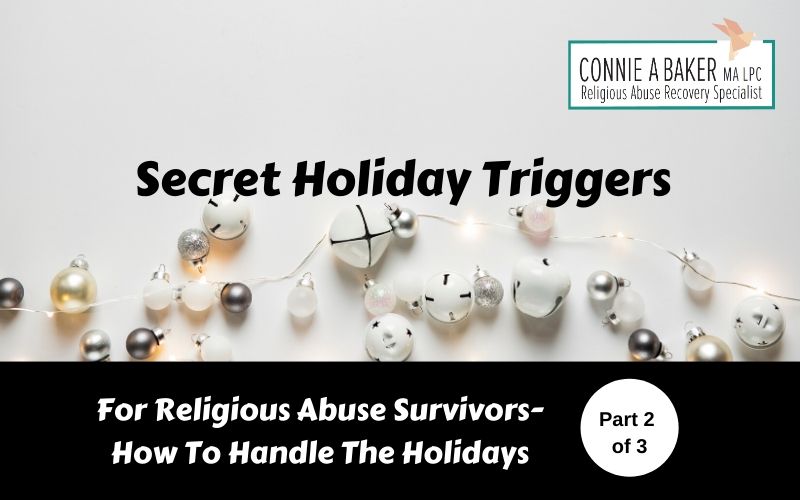

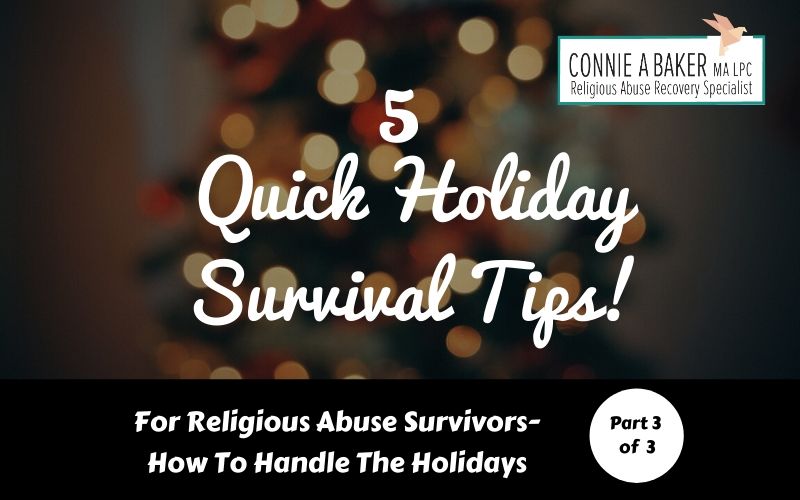
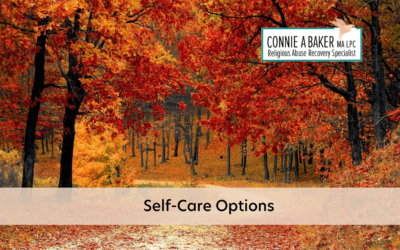
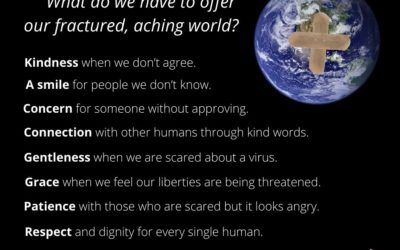
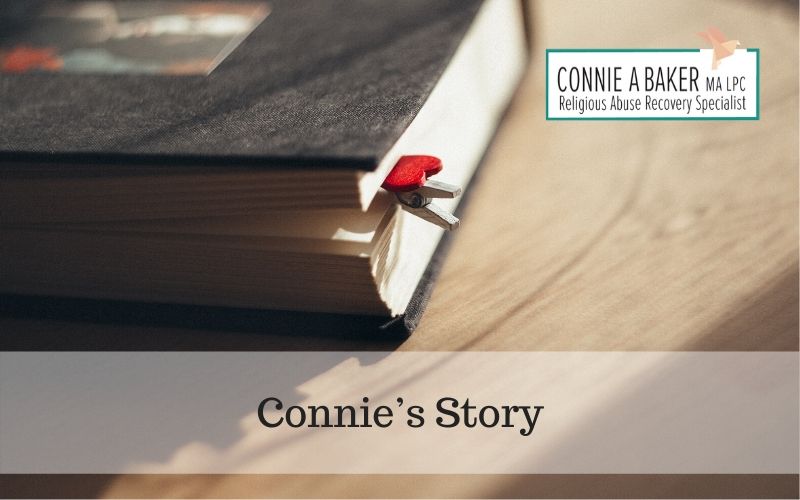
0 Comments
Trackbacks/Pingbacks